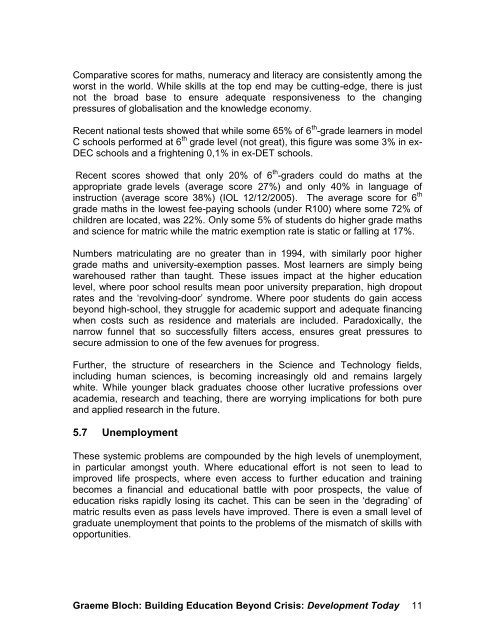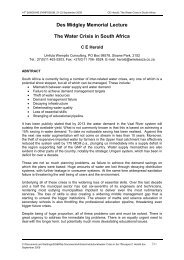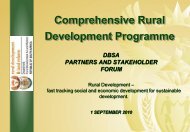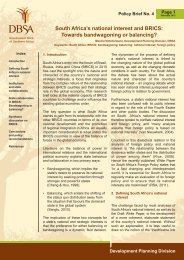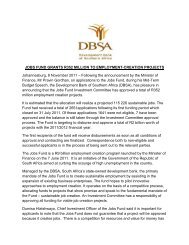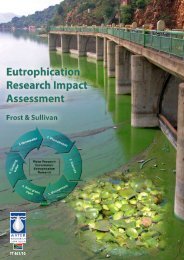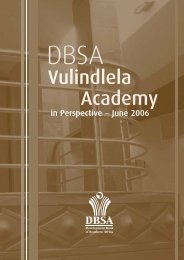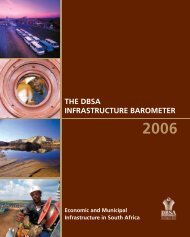Building education beyond crisis.pdf
Building education beyond crisis.pdf
Building education beyond crisis.pdf
Create successful ePaper yourself
Turn your PDF publications into a flip-book with our unique Google optimized e-Paper software.
Comparative scores for maths, numeracy and literacy are consistently among theworst in the world. While skills at the top end may be cutting-edge, there is justnot the broad base to ensure adequate responsiveness to the changingpressures of globalisation and the knowledge economy.Recent national tests showed that while some 65% of 6 th -grade learners in modelC schools performed at 6 th grade level (not great), this figure was some 3% in ex-DEC schools and a frightening 0,1% in ex-DET schools.Recent scores showed that only 20% of 6 th -graders could do maths at theappropriate grade levels (average score 27%) and only 40% in language ofinstruction (average score 38%) (IOL 12/12/2005). The average score for 6 thgrade maths in the lowest fee-paying schools (under R100) where some 72% ofchildren are located, was 22%. Only some 5% of students do higher grade mathsand science for matric while the matric exemption rate is static or falling at 17%.Numbers matriculating are no greater than in 1994, with similarly poor highergrade maths and university-exemption passes. Most learners are simply beingwarehoused rather than taught. These issues impact at the higher <strong>education</strong>level, where poor school results mean poor university preparation, high dropoutrates and the ‗revolving-door‘ syndrome. Where poor students do gain access<strong>beyond</strong> high-school, they struggle for academic support and adequate financingwhen costs such as residence and materials are included. Paradoxically, thenarrow funnel that so successfully filters access, ensures great pressures tosecure admission to one of the few avenues for progress.Further, the structure of researchers in the Science and Technology fields,including human sciences, is becoming increasingly old and remains largelywhite. While younger black graduates choose other lucrative professions overacademia, research and teaching, there are worrying implications for both pureand applied research in the future.5.7 UnemploymentThese systemic problems are compounded by the high levels of unemployment,in particular amongst youth. Where <strong>education</strong>al effort is not seen to lead toimproved life prospects, where even access to further <strong>education</strong> and trainingbecomes a financial and <strong>education</strong>al battle with poor prospects, the value of<strong>education</strong> risks rapidly losing its cachet. This can be seen in the ‗degrading‘ ofmatric results even as pass levels have improved. There is even a small level ofgraduate unemployment that points to the problems of the mismatch of skills withopportunities.Graeme Bloch: <strong>Building</strong> Education Beyond Crisis: Development Today 11


